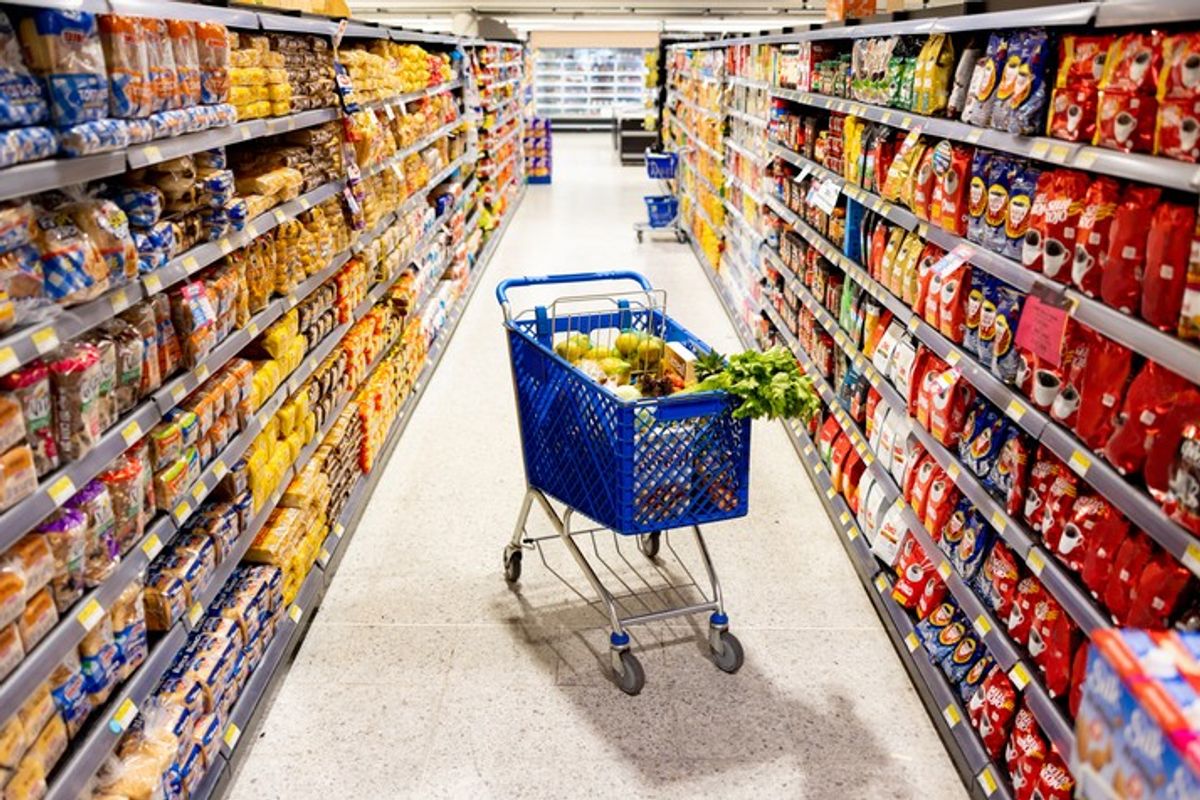Simpler eating habits, lesser shopping trips, use of fewer ingredients and less snacking are some of the consumers habits highlighted by Kantar as it released its UK's grocery market share data for February 2025.
Take-home sales at the grocers rose by 3.6 per cent over the four weeks to 23 February compared with one year ago, according to the latest data from Kantar.
As the five-year anniversary of the first Covid-19 lockdown approaches, Kantar has been looking into how consumers’ grocery habits have evolved – from lifestyle to loyalty.
Sally Ball, head of retail at Kantar, comments: “Back in 2020, we didn’t know just how big an impact the Covid-19 pandemic would have on our lives, but five years on we can get a picture of its lingering effects on consumers.
"We haven’t gone back to old patterns and shopping trips remain below pre-pandemic times. Households made one less visit to the supermarket in February 2025 than in 2020, while online shopping appears to have stuck, taking a 12.3 per cent market share this month versus 8.6 per cent in February 2020.
“One of the most interesting changes has been a move to simpler eating habits as we look for convenient shortcuts to make our lives easier. People are taking less time to prepare meals, and prep time in the evening, for example, has declined from almost 34 minutes in 2020 to 31 minutes in 2024.”
Kantar consumption data also shows that people are now using fewer different ingredients when making food, both at lunch and in the evening. Consumers are snacking less often too, dropping more than 330 million occasions in 2024 versus 2020.
Ball continues, “Of course, it’s hard to untangle the cost-of-living crisis from any post-Covid analysis, and the other big headline of the past few years has been consumers’ hunt for value.
"You might think that people would shop around more to find the best deals but in fact, that’s not the case. Households visited just under five different grocers this month, the lowest level in February since 2021.
"The growth of supermarket loyalty schemes is partly behind this as shoppers use them to unlock exclusive discounts.”
Since Clubcard first hit the scene in 1995, Tesco has risen to become Britain’s largest grocer – up from second place 30 years ago. It now holds 28.3 per cent of the market in the 12 weeks to 23 February 2025, while its sales growth is at its highest since March 2024 at 5.8 per cent.
Retailer promotions helped to hold grocery price inflation steady at 3.3 per cent in February 2025, as spending on deals rose again. Items bought on offer now account for 27.6 per cent of sales, a rise of 0.3 percentage points on last year. Premium own label lines also continue to be popular, growing at 13.3 per cent this month, as people seek cost-effective ways to treat themselves.
Turning to the discounters, Aldi accelerated its growth by attracting 377,000 more shoppers through its doors. The retailer achieved a market share of 10.3 per cent following a 4.9 per cent rise in sales – its highest rate since January 2024. Lidl has also seen its portion of the market rise by 0.3 percentage points to 7.3 per cent compared with February 2024.
Sainsbury's made gains in the 12 weeks to 23 February, increasing its share of the market from 15.5 per cent to 15.7 per cent compared to this time last year. Morrisons now holds 8.6 per cent of the market while Asda has 12.6 per cent.
Convenience retailer Co-op remained in growth, giving it a market share of 5.1 per cent while share of symbols and independents slipped further by one per cent.


